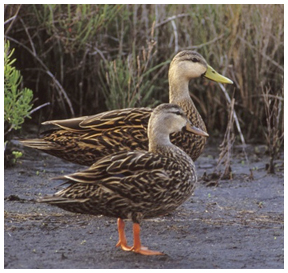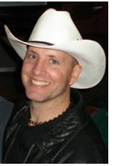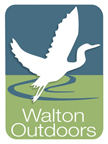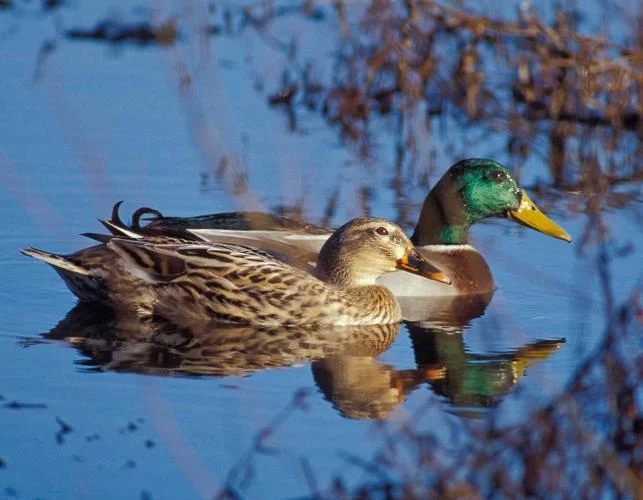Outta the Woods: Ducks – more than they’re quacked up to be
As Easter approaches, many parents buy mallard ducklings for their children. We’ve done that for generations, but consequences have caught up with us.
These ducks can live 10 years. They might make nice pets while they are still small enough to fit in your hand, but when they become full-grown and the novelty wears off, people often grow tired of caring for them and decide to turn them loose. Most don’t realize that is against the law, and these mallards pose a serious threat to Florida’s native wildlife.

Besides making it illegal to release mallards, Florida law also requires anyone possessing, buying or selling mallards to have a permit from the FWC, and the birds must be kept in a cage as long as they live.
One reason for this rule is that domesticated ducks can transmit diseases and compete with native wildlife for food and habitat. It’s actually illegal to release any animal into the wild if it poses a disease hazard. But the most important reason is releasing domesticated mallards into the wild threatens the existence of the Florida mottled duck.
The Florida mottled duck, also called the Florida duck, is a unique subspecies found only in peninsular Florida. It keeps to a small home range in inland and coastal wetland ecosystems.
To hunters, the mottled duck is a highly prized game bird found in many ponds, lakes, rivers, marshes and canals in Central and South Florida. They are large ducks, brownish in color, with both sexes being darker than a mallard but slightly lighter than a black duck.
This species is one of only a few nonmigratory ducks in North America. The mottled duck spends its entire life within Florida.
In the spring, wild mallards fly north to breed and are not present when the mottled duck mating season begins. On the other hand, store-bought mallards don’t migrate and instead become established, year-round residents of Florida. These domesticated mallards crossbreed with mottled ducks and produce hybrid offspring. The offspring are fertile, which compounds the situation. Each year, there are fewer purebred mottled ducks left, and the trend is driving the Florida mottled duck toward extinction.
Communities around the globe have seen similar problems. In New Zealand, domesticated mallards, released to provide hunting stock, have devastated the local grey duck populations. Now, 95 percent of the grey ducks in New Zealand are hybrids.
The Hawaiian duck is another example. This endangered bird has been all but completely hybridized and may be genetically intact only on the island of Kauai.
Meller’s duck in Madagascar is yet another example.
The fate of the Florida mottled duck could be similar, as its population is relatively small, estimated at only 30,000-50,000 breeding birds. FWC biologists say between 7 and 12 percent of the state’s mottled ducks are showing genetic evidence of hybridization.
Floridians purchase more than 12,000 mallards a year, and many of them make their way into nearby waters. Given these alarming figures, plus the fact the population of mottled ducks is small, it wouldn’t take long for the Florida mottled duck to disappear.
The solution starts with not buying your child a mallard duck for Easter.
To go a step further, don’t feed or shelter domesticated mallards; help spread the word; and consider requesting permits to remove any that may live on your property.
For more information on protecting Florida’s mottled duck or to obtain permits for removing domesticated mallards, contact one of the FWC’s waterfowl offices at 850-488-5878 or 321-726-2862, or visit https://myfwc.com/wildlifehabitats/wildlife/waterfowl/hybridization/


